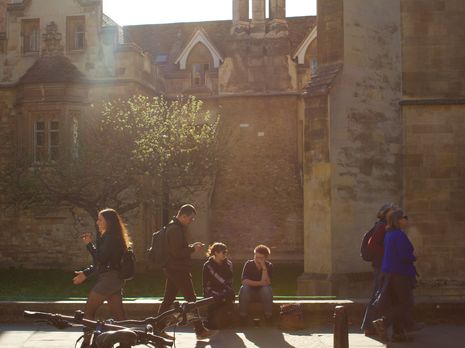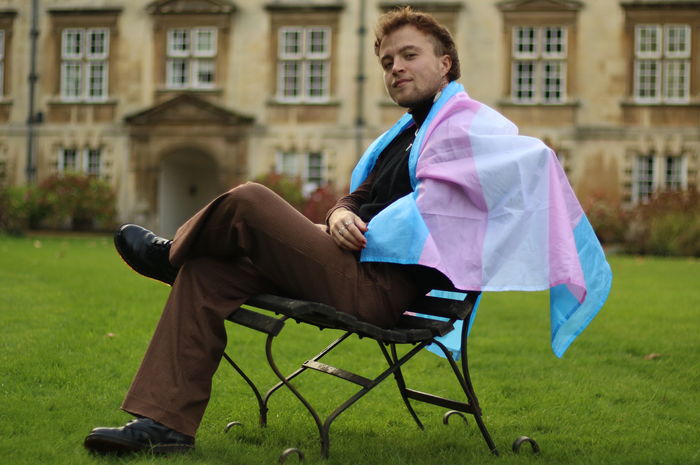‘The costs are absurd’: international students on studying at Cambridge
What barriers do international students face while at Cambridge?

Earlier this year, Roshan received an offer to study Natural Sciences at Cambridge. “It was always my top choice,” he says. “But I knew throughout the process that I probably wouldn’t be able to go.”
The University website claims that admitting international students is a means “to seek talent from the widest possible pool”, but high barriers to access mean that Cambridge remains beyond reach for the vast majority of the global population. Roshan is from India, and international fees are notoriously high.
“The costs are absurd compared to other countries, and the website is pretty clear that they don’t have enough scholarships,” he says. “The good thing is they’re transparent about it.” Roshan was offered a £10,000 scholarship from the Cambridge Trust, but this still covered only a small fraction of his potential costs. “There was no scope to work during term, whereas universities in other countries have co-op programs and on-campus jobs,” he adds. Ultimately, after many emails and a series of difficult discussions at home, he turned down his offer.
For 2023 entry, annual tuition fees range from £24,507 for humanities courses to £63,990 for Medicine and Veterinary Science. International students are also required to pay a College fee, which can range from £8,750 to £11,750. Together with living costs, this means that education at Cambridge as an international student comes with a price tag of £45,000 per year at a minimum – or over £55,000 for Roshan with Natural Sciences.
Means-tested scholarships, such as those provided by the Cambridge Trust, are offered to only a select few and typically only partially cover costs. In most cases, international students are ineligible for the Cambridge Bursary Scheme or UK student loans. (In contrast, the annual US News survey found that the typical international student in the US receives around $22,000 per year in financial aid from their university.)
A second-year student from Malaysia tells me he’s here on a conditional government scholarship: to keep it, he must meet grade requirements while at Cambridge, and then work in Malaysia for eight years after graduating. If he works for the government, he keeps the full scholarship – but if he chooses to work for a private company, he has to pay 50% of his fees back. “All that seems fine, but the average pay in my country is lower than the minimum wage in the UK,” he says. To earn back even a quarter of his fees would take years.
‘The average pay in my country is lower than the minimum wage in the UK. To earn back even a quarter of my fees would take years’
In the 2021 undergraduate application cycle, Home applications had a 19.4% success rate, but only 9.9% of applications from outside the UK were successful. This disparity is more pronounced for some countries than others: success rates were under 5% for countries such as the United States and India, and as low as 1.4% for Pakistan.
Just as certain schools dominate Home admissions, some schools abroad see more success than others. For example, Raffles Junior College and Hwa Chong Institution, both in Singapore, received 48 and 38 offers respectively in 2021 – which means that two schools alone were responsible for 8% of all non-UK offers. “It’s insane for me to think about, because I’ve only met two other undergrads from my country here,” said a second-year student. “The international experience is so diverse. It’s not fair that you have a few schools in some countries that provide so much more support.”
Others disagree. Despite being forced to turn down his offer, Roshan is clear that his experience of Cambridge and his interactions with his chosen college were very positive. “I think the application process itself is as meritocratic as it can be,” he says. “They’re transparent about their requirements and what they’re looking for from the outset.”
Applicants from countries such as Brazil, Pakistan, and Argentina are required to register for international qualifications (such as the International Baccalaureate or Advanced Placement tests) because their national qualifications are considered unsuitable for admission. This, too, has repercussions for access: “The IB, for example, is usually only offered at expensive international schools,” said a second-year at Queens’. “So unless you can afford it, or get a scholarship to those schools, you don’t even have a shot at getting here – which is fine, Cambridge doesn’t have to cater to [foreign] students, but it is a barrier to applying.”
This sentiment was echoed by several other students: “In my country, only students from the most elite schools apply to Cambridge,” said a first-year who is here on a scholarship. “No one else could even fathom paying that much money.”
The consequence is that prospective students must bridge financial hurdles before the application process even begins. When they apply, international application and interview fees amount to £110, and some students are asked to take English proficiency tests such as IELTS, which can cost up to £195. “It is completely unreasonable,” said Guanting, a second-year student from China, on application fees. “I don’t mind paying, but the University needs to explain why they’re charging us. What is the difference between me submitting a form and a native student submitting the same form?”
Being an international student also means living alone in a foreign country, often as part of an ethnic minority for the first time – though naturally this experience differs by individual context. “I don’t feel the struggles associated with being international are recognised enough,” said a second-year. “It’s present in everything, little cultural things, the food, the laundry, the clothes. Obviously it’s all part of adapting to a new culture, but it does make it harder to settle in.”
In the Big Cambridge Survey 2018, international students were substantially less likely than Home students to report that they felt confident seeking help on personal issues. Over 35% of non-EU international students reported being affected by race- and nationality-related prejudice. Guanting tells me he’s met with two such incidents in the past two weeks: “The first was in Spoons, where a stranger called me an immigrant – and I’m not even an immigrant. Another time I was in a taxi and someone called out ‘you know, this is not China’. I’m like, how do you even know I’m from China? And he said ‘from your face’.”
“But,” Guanting adds, “I think Cambridge is relatively more diverse than other universities, and students should be proud of that.” Here, again, opinions differ: “Universities in other countries tend to have more of an international community, and more of an international presence,” said another second-year. “Whereas here, I don’t know, I’ve found it hard to find that community.”
In some cases it’s more subtle. “I think your nationality becomes your personality,” said a third-year from Australia. “It’s easy to start conversations due to the differences, but it takes empathy on both sides to be able to get deeper.”
 News / Judge Business School advisor resigns over Epstein and Andrew links18 February 2026
News / Judge Business School advisor resigns over Epstein and Andrew links18 February 2026 News / Hundreds of Cambridge academics demand vote on fate of vet course20 February 2026
News / Hundreds of Cambridge academics demand vote on fate of vet course20 February 2026 News / Petition demands University reverse decision on vegan menu20 February 2026
News / Petition demands University reverse decision on vegan menu20 February 2026 News / CUCA members attend Reform rally in London20 February 2026
News / CUCA members attend Reform rally in London20 February 2026 News / Gov grants £36m to Cambridge supercomputer17 February 2026
News / Gov grants £36m to Cambridge supercomputer17 February 2026










